IMMACULATE (2024)
A woman of devout faith is offered a role at an illustrious convent, but it becomes clear that her new home harbours dark and horrifying secrets.
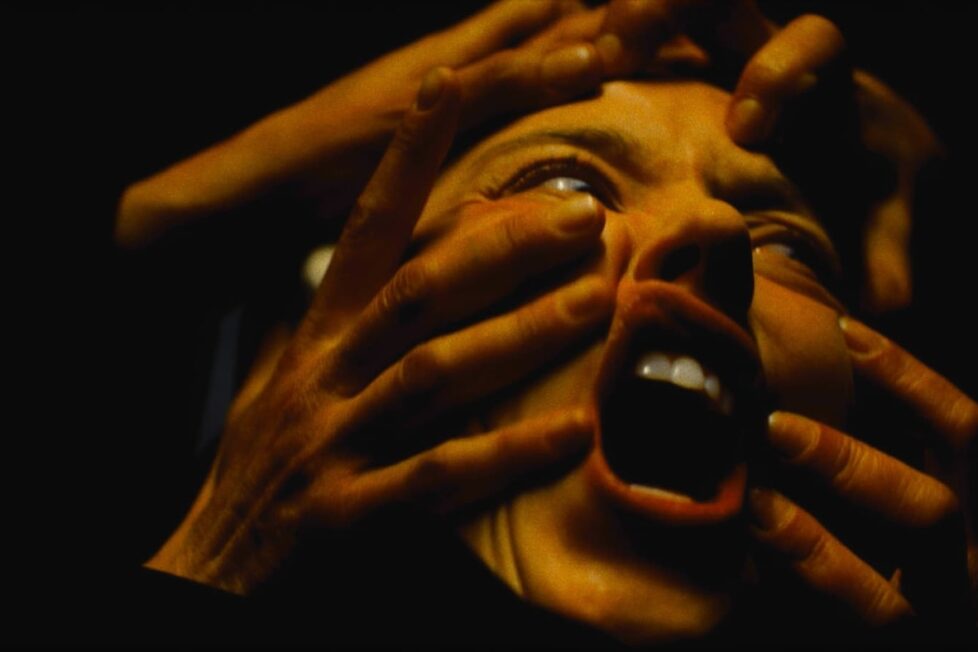
A woman of devout faith is offered a role at an illustrious convent, but it becomes clear that her new home harbours dark and horrifying secrets.


After The Nun II (2023), the forthcoming First Omen (2024), and now Immaculate, directed by Michael Mohan and written by Andrew Lobel, you’d be forgiven for thinking we’re in a glut of the Catholic horror sub-genre. How about, for a change, a horror film where a couple of atheists dismiss strange noises as just the pipes and settle down to watch EastEnders?
Sister Cecilia (Sydney Sweeney) is invited to reside at a beautiful Italian convent, despite not speaking the language. (A frankly implausible plot device.) The convent houses a majority of elderly nuns cared for by their younger sisters, functioning more as a convalescent home than a cloister. As time passes, however, Cecilia grows suspicious. Why are the priest and the bishop suddenly fixated on her chastity? What secrets lie behind the unsettling atmosphere? Things come to a head when it transpires that she’s no longer fasting for one…
Immaculate has been receiving relatively good reviews for a bit of cheap claptrap, and I’m not entirely sure why. Sweeney’s performance has been singled out for particular praise. It’s good, don’t get me wrong, and she’s a talented actress, but it’s a competent performance in service of a rather insignificant role.
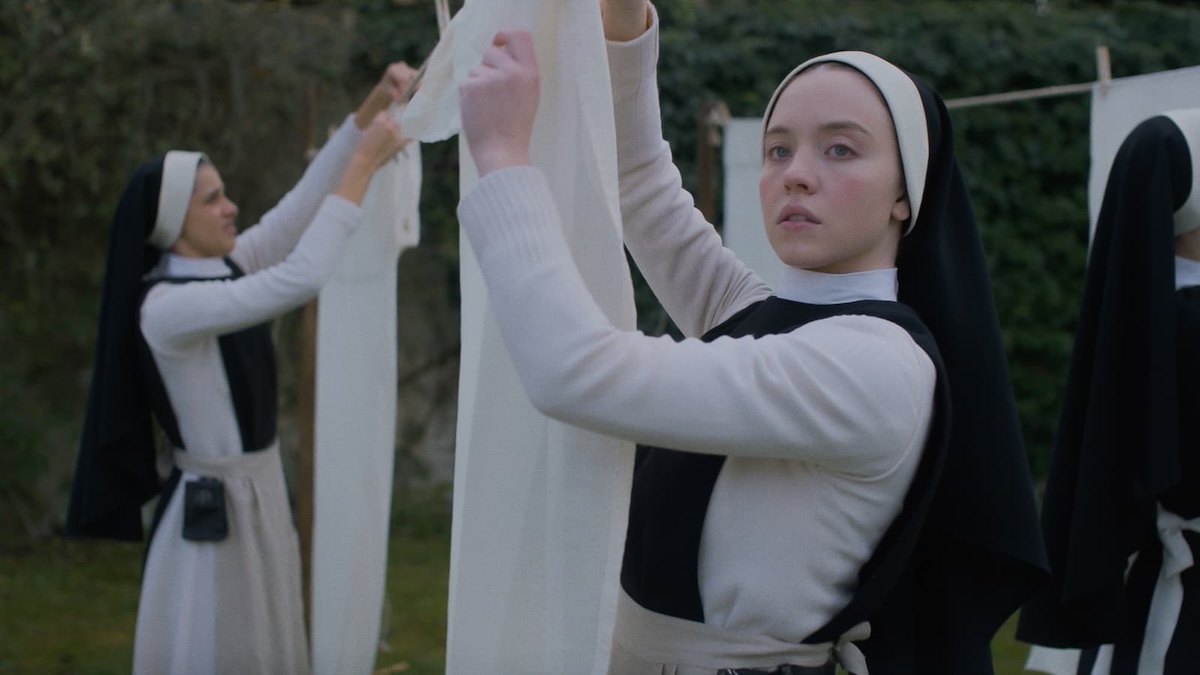
I suppose what annoys me most about Immaculate is that it’s a Catholic horror film made by people who seem entirely ignorant of their subject matter and show little interest in exploring thematic elements. The story is utterly unbelievable for anyone with even a basic understanding of theology, history, or even the meaning of words.
I’m reminded of Stigmata (1999), the film where Patricia Arquette plays a hairdresser who starts displaying the holy wounds Christ suffered on the cross. She exhibits symptoms commonly associated with demonic possession, with the film misunderstanding how proximity to Christ’s experience works. After all, Catholics don’t tend to view Christ as a demon.
Similarly, when Sweeney learns of her immaculate conception, she’s downcast and asks in a pitiful voice, “Why me?” Would a devout noviciate, convinced of God’s intervention throughout her life, be quite so glum and suspicious about this news?

A complex response to the immense and miraculous events focusing on her would be perfectly acceptable; in fact, it would be more than welcome. Perhaps she feels a little dubious, afraid, or unsure of whether she’s up to the task. However, we get none of that here. She reacts, I’ve just realised, in a similar way to how an atheist would if they were staying at a convent for some reason and inexplicably became pregnant.
Furthermore, if you were one of the holy figures tasked with overseeing Jesus 2.0’s arrival in the world, would you create a convent based on deception and cruelty, where Christ’s mother is interrogated like a common prostitute, frightened, struck, and nearly drowned by a deranged fellow nun, and so on?
This is becoming a bit of a bugbear for me, but films like this seem to think that pregnancy is simply carrying a bun in the oven for nine months. They appear to believe nothing short of a bazooka to the belly button can interfere with gestation. Unless you want your saviour to be either stillborn or profoundly disabled, perhaps work harder at convincing the mother you’re a touch more “Kumbaya, my Lord” and less Spanish Inquisition.
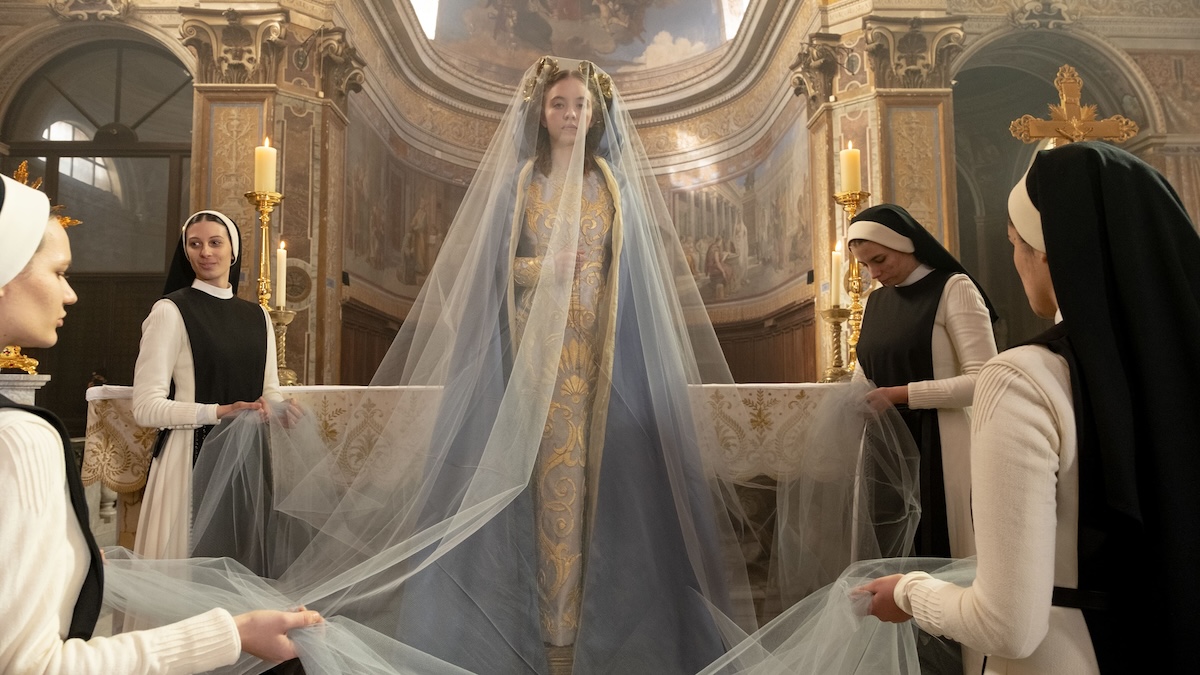
It’s difficult to know where to start with how stupid this film’s plot is, especially without giving anything away. I will say that its attitude towards and use of relics would seem ridiculous even in an episode of Blackadder (1983-89). The story tries to have a patina of scientific credibility by making one character a former scientist and introducing an underground lab with deformed foetuses in jars, but it doesn’t even reach the level of hokum.
There’s no reason why a modern Catholic institution—and we know this is a latter-day one because we see a mobile phone—would believe the relic in question is genuine. No one even bothers to explain how it functions beyond some mumbling about DNA, though that’s almost irrelevant. The bigger question from a story’s perspective is: if the conception involves applying foreign DNA to a host body, how on earth is it “immaculate”? By the villains’ logic, any woman who undergoes IVF—or experiences pregnancy without penetration, like when a man ejaculates prematurely—has carried a potential saviour of mankind.
(The doctrine of the Immaculate Conception refers to Mary herself, her conception being without original sin, and Jesus’s conception as the Virgin Birth. However, if Sweeney’s character is immaculate, why is she treated with such hostility and violence?
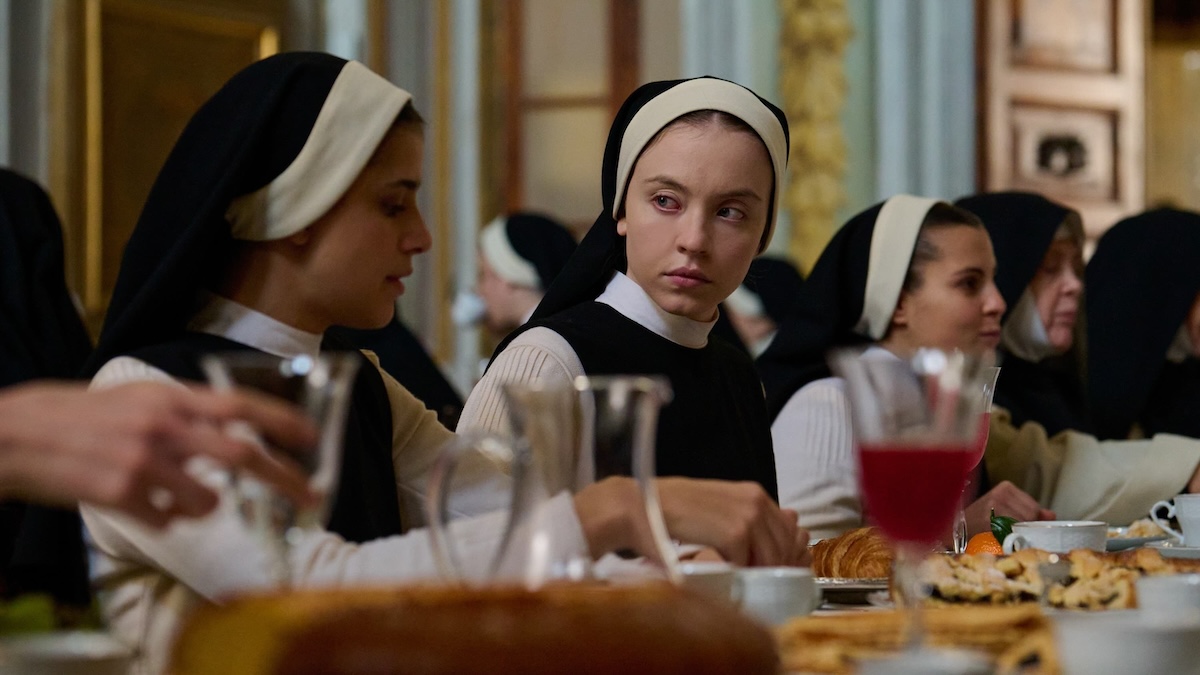
The Catholics in this film are clearly Satanists, and making them so explicitly would have made much more sense. This is especially true given the film’s apparent ambition to be a kind of inverted take on Rosemary’s Baby (1968). However, what it misunderstands about that film is that its power comes from its grounding in the every day and the underlying sociopolitical themes it explores. The occult element, whether or not Rosemary is truly carrying the Devil’s child, is arguably the least interesting aspect. The tension arises from the way Mia Farrow’s Rosemary is repeatedly and systematically disempowered by those around her. She’s cut off from her girlfriends who could provide support, coerced into accepting “medicinal” beverages from her neighbours (who gain access to her during her pregnancy without her consent), and so on.
Immaculate tries to evoke something similar, but it’s a case of knowing the words, not the music. Two young nuns besides Sweeney’s Cecilia are (very) lightly characterised: Sister Isabella (Giulia Heathfield Di Renzi) and Sister Gwen (Benedetta Porcaroli), the former troubled and forbidding, while the latter is your standard-issue sassy nun who makes her sisters giggle before Mother Superior’s stern gaze. The film touches on themes of misogyny, but only superficially; it has no real interest in delving deeper into the subject. There’s also a handsome and mercurial priest called Father Tedeschi (Álvaro Morte) who embodies the patriarchy. Morte does his best with the role, effectively conveying both charm and menace.
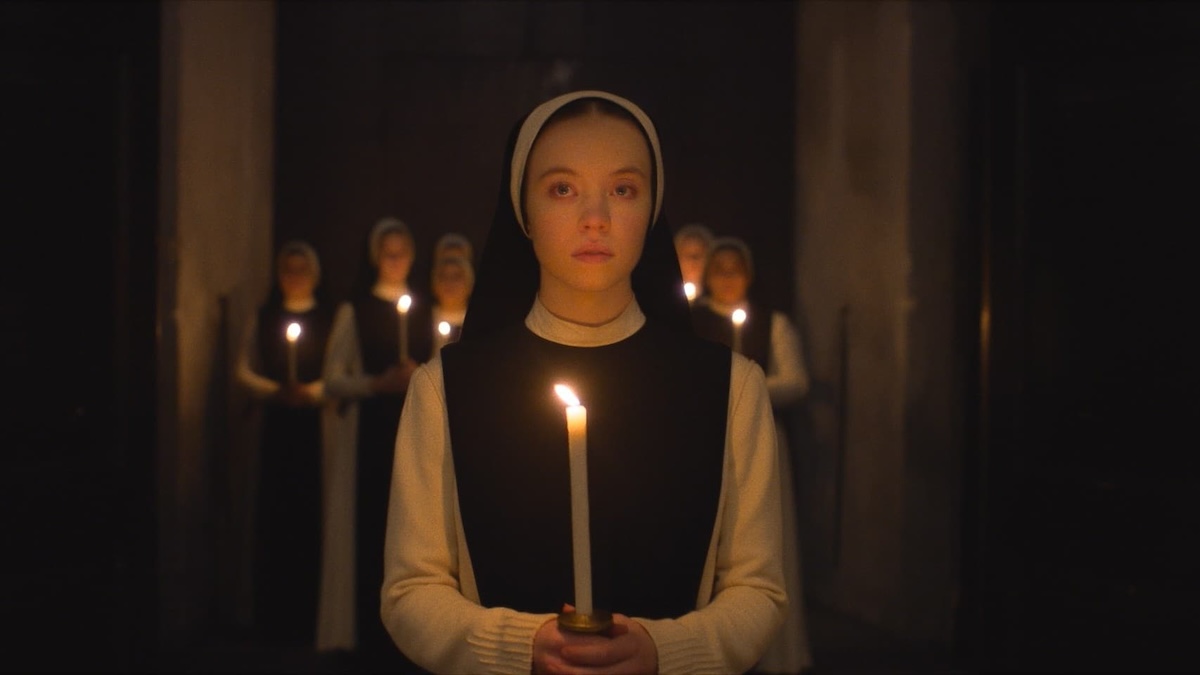
While I haven’t mentioned it yet because I’ve been so preoccupied with the film’s nonsensical plot, most of Immaculate consists of Sweeney simply wandering around punctuated by loud bangs on the soundtrack, with barely justifiable diegetic reasons. The film initially holds your attention with a vague intrigue about its direction, but every single bang chips away at my patience. BANG! A bird strikes a windowpane. BANG! Hands burst through a wall. BANG! I don’t know what that one was! It grows incredibly monotonous.
The film’s ending is in such spectacularly bad taste. It follows the worst possible course of action it could imply, with “Ave Maria” playing over the end credits. This almost makes me want to admire it for its audacity. However, it’s so bereft of ideas beyond “wouldn’t it be shocking if…?” that it simply feels juvenile. Immaculate is boring and obnoxious in its storytelling. The plot is so weak it could be debunked by a Year 8 Religious Studies student. A cheerful goriness redeems it somewhat, but not enough to make it much more entertaining than catechism.
ITALY • USA | 2024 | 89 MINUTES | 2.00:1 | COLOUR | ENGLISH

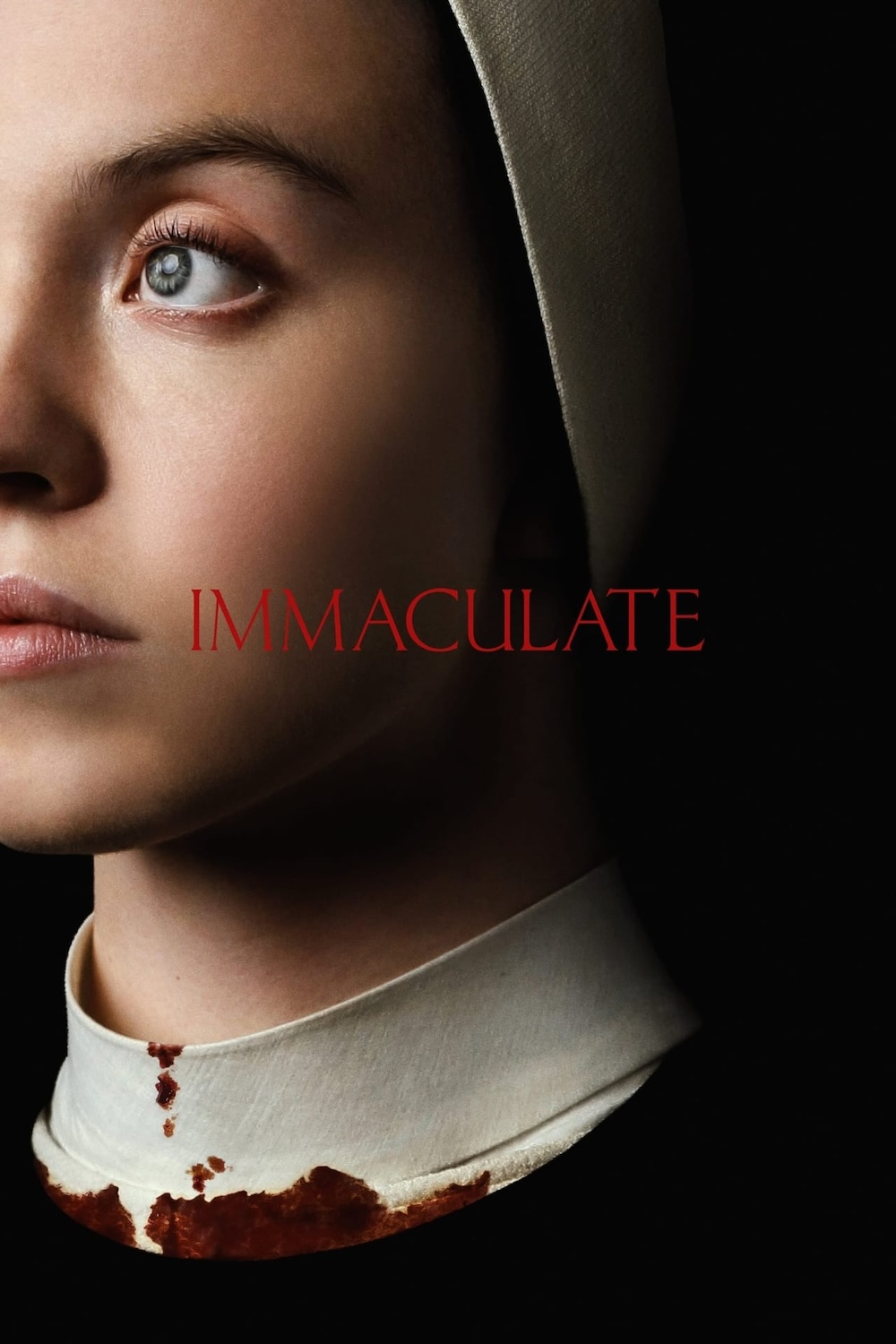
director: Michael Mohan.
writer: Andrew Lobel.
starring: Sydney Sweeney, Álvaro Morte, Benedetta Porcaroli, Dora Romano, Giorgio Colangeli & Simona Tabasco.
